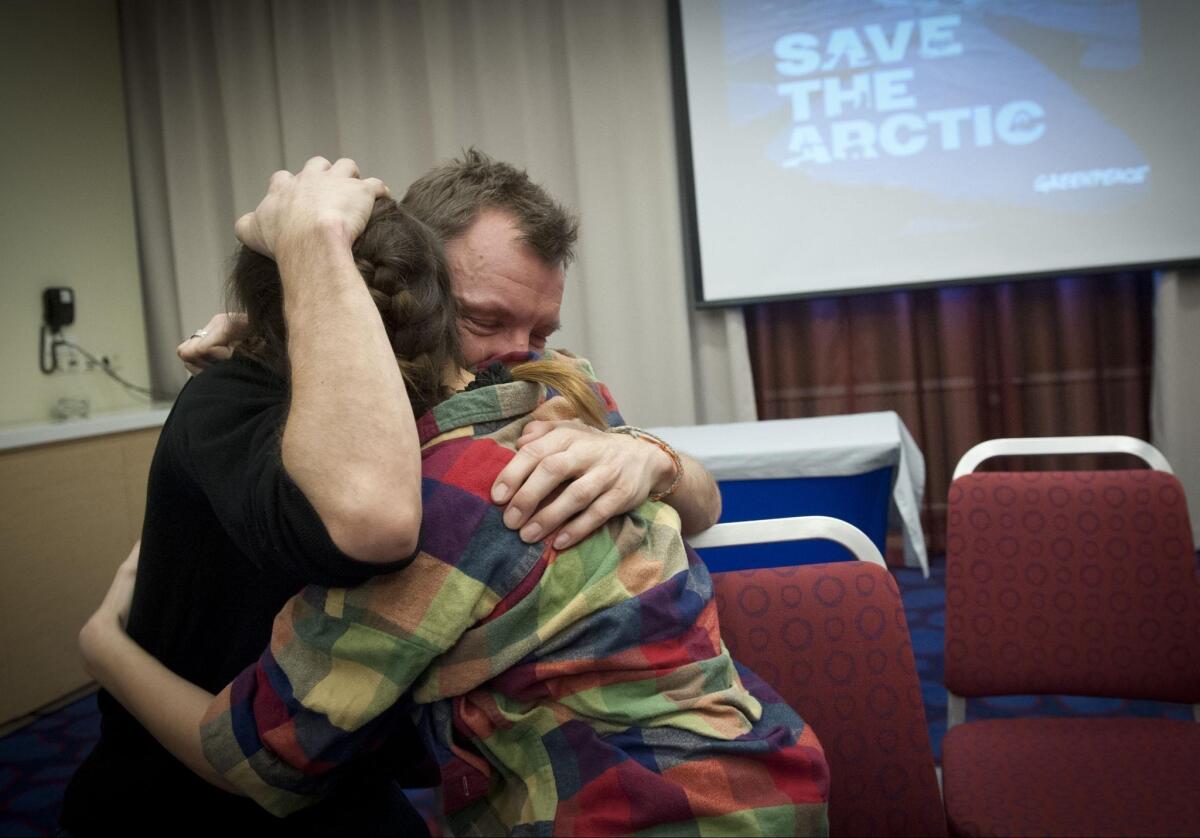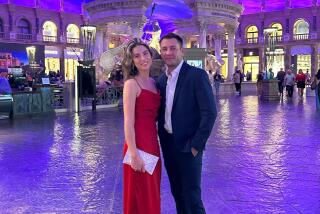Pussy Riot, Greenpeace could benefit from Russian amnesty law

MOSCOW – Russia’s parliament on Wednesday approved an amnesty law that could allow two jailed members of the punk music group Pussy Riot to go free and pardon 30 people facing charges over a Greenpeace protest against Arctic oil drilling.
But human rights activists complained that the bill unanimously approved by the State Duma, or lower house, is too narrow and will free only 2,000 to 5,000 inmates when it takes effect this week.
The amnesty was seen as an attempt to deflect criticism of Russia’s human rights record ahead of the Olympic Winter Games, which will take place in the Black Sea resort of Sochi.
Concern about a Russian law prohibiting gay “propaganda” spurred calls for a boycott of the games. In a pointed move, the United States announced this week that it is sending a delegation to the opening and closing ceremonies that includes two openly gay athletes. President Obama, however, will not attend.
The Russian amnesty applies to people jailed or detained for offensives punishable by no more than five years in prison. Among those who can be freed are mothers with young children, people who committed offenses as minors, have disabilities or who served in hot spots with the Russian military.
Pussy Riot members Nadezhda Tolokonnikova and Maria Alyokhina were accused of hooliganism, an offense covered by the amnesty. Both also have young children. However, Alyokhina hinted this week that she might not want amnesty.
“Can I refuse to be amnestied?” she was quoted as saying in a tweet sent from the account of the Russian art collective Voina. “I have so much to do in the [labor] colony.”
She and Tolokonnikova were sentenced to two years in prison for staging a “punk prayer” last year at a Moscow cathedral begging Mother Mary “to drive Putin away.” Without amnesty, their terms would expire in March.
Denis Sinyakov, a well-known Russian freelance photographer who was covering the Greenpeace protest and was on the group’s ice breaker when it was stormed by Russian commandos in September, also was not thrilled about the idea of receiving amnesty.
“I and my Greenpeace friends did nothing wrong and committed no crime,” Sinyakov told the Los Angeles Times. “I think this is how the authorities are trying to get out of the uncomfortable situation they drove themselves into with their lawless action against us all.”
The group spent more than two months in custody in the northern Russian port of Murmansk and in St. Petersburg before they were released on bail last month, pending an investigation.
The photographer is considering seeking compensation for emotional hardship and material damages. He says authorities confiscated two cameras, three lenses, an iPhone and a notebook computer containing much of his professional archive and have not returned them.
“I dread the thought that my archive stored on the notebook is gone,” Sinyakov said. “Among other things, it contained images which chronicled the entire trip and the dramatic episodes of the action near the [oil] platform and the capture of our ship by armed commandos.”
Rights activists lashed out at the Kremlin for reducing the amnesty’s scope before it reached parliament.
“The way we elaborated the project early in the year provided for a sweeping amnesty which would set at least 30,000 people free,” Valery Borshchev, who advises the Kremlin on human rights issues, said in an interview with the Times. “The Kremlin, however, continues to demonstrate its toughness, especially toward its political opponents.”
Prominent Putin opponents such as ex-oil tycoon Mikhail Khodorkovsky, who was jailed on fraud and tax evasion charges, won’t qualify for amnesty, Borshchev said. Neither will most of those under investigation for taking part in clashes between police and opposition protesters on the eve of Putin’s inauguration last year.
But Sergei Markov, a political analyst close to the Kremlin, hailed the amnesty as an act of clemency. He stressed that it was not offered for the sake of Pussy Riot and Greenpeace, but for thousands of ordinary Russians whose crimes were not serious.
“Pussy Riot and the Greenpeace activists have been punished enough, and their example is a good lesson for others,” said Markov, vice president of the Plekhanov Russian University of Economics. “I would release Khodorkovsky as well. But he, albeit in prison, still uses his money to work against the Kremlin, and this is unacceptable.”
ALSO:U.S. seeks to defuse spat with India
British Great Train Robber Ronnie Biggs dies at 84
Syria: Reports of more than 100 dead in airstrikes on Aleppo
More to Read
Start your day right
Sign up for Essential California for news, features and recommendations from the L.A. Times and beyond in your inbox six days a week.
You may occasionally receive promotional content from the Los Angeles Times.






